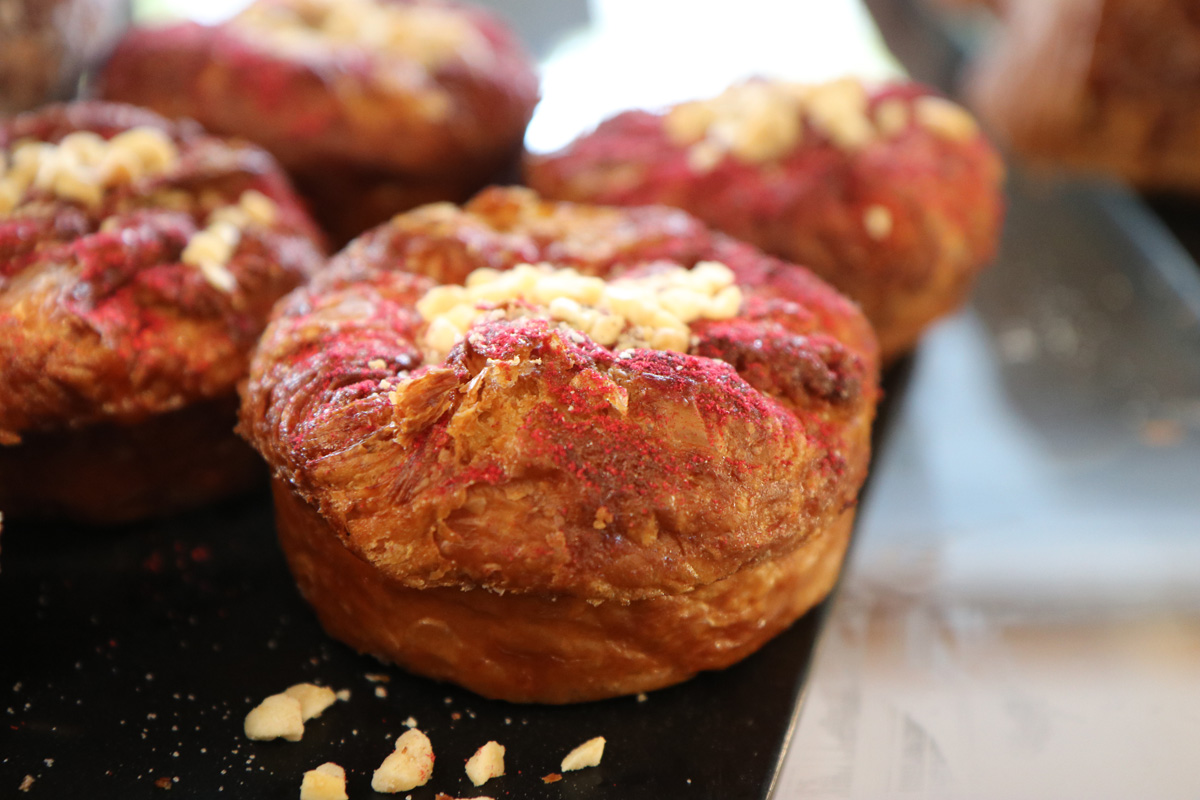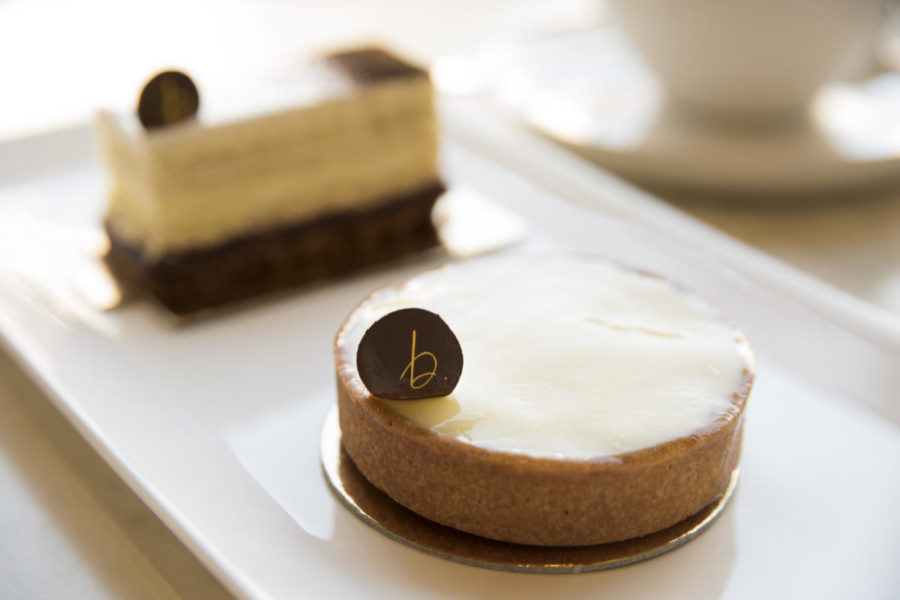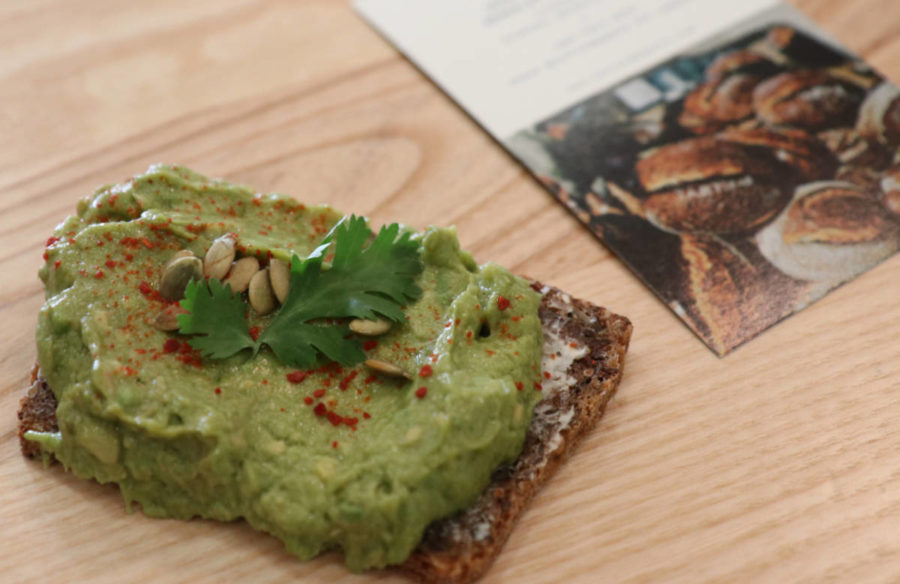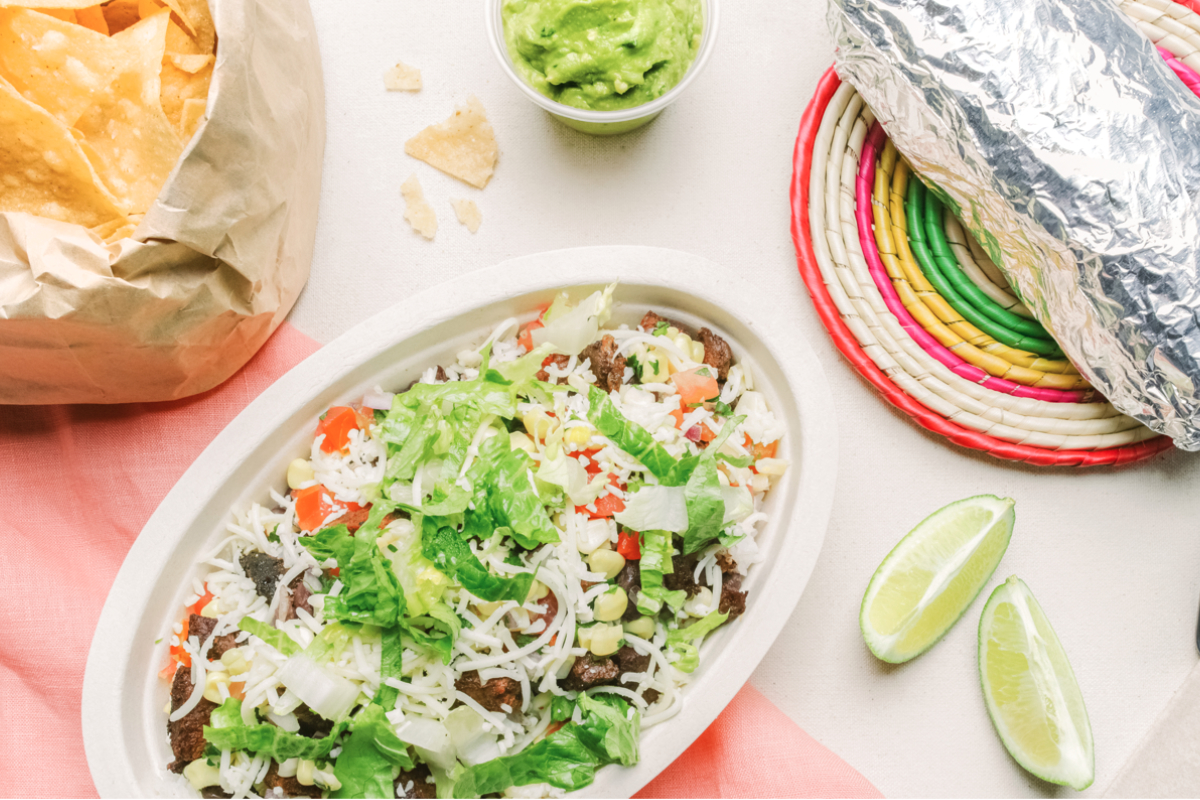Much has been written about the future of America’s bakery and pastry business, and yet to see — and taste — it firsthand, one only needs to spend a week in San Francisco, where the imagination of this city’s renowned bakers and pastry chefs is on full display every morning at the intersections of savory and sweet.
My first stop is Jane the Bakery. Owner Amanda Michael, who named her place after daughter Jane, opened her first San Francisco location in 2011, starting with pastries, breakfast and lunch items. A second store followed in 2013. Then came their “bursting at the seams” moment.
In late 2016, Jane the Bakery opened on Geary Street in the Lower Fillmore neighborhood, where a diverse community comes for bread, sandwiches, pastries and fresh salads. The 3,000-square-foot bakery offers limited counter seating and outside benches, and there are nearby parks, playgrounds and athletic fields. They bake several dozen breads in-house daily as well as a full line of laminated items and pastries. They make several different rye breads. They rely on Central Milling flour, one of which is a California 100% wheat flour.
“We are stretching ourselves — by breaking down the walls to work in bakery to pastry, and pastry to viennoiserie,” Michael says. “We are working with whole grain lamination, which is a super dynamic change. We have opened up with more savory pastries. We are endlessly putting out new products.”

As an example of one recent creation, they make a savory puff pastry with ham and cheese, with the flour made from einkorn, an ancient grain. On National Bakery Day in late September, customers flocked to Jane the Bakery where they concocted a unique peanut butter and jelly kouign amann, first originated in the 1800s in Brittany, France. Layers of butter and sugar are folded into a yeast dough; Michael adds a special touch with house-made jam swirled with peanut butter. In every bite, you taste a bit of each delicious flavor. Michael bakes by a simple rule: Never skimp on inclusions.
One new item is 100% whole wheat loaf bread that is part of a nationwide project known as the Bread Lab Collective. They bake this 900-gram whole grain bread in a loaf pan and keep the price point at $6.
“It’s an approachable loaf that is super popular. Parents will buy it for their kids; it’s a soft sourdough bread that is perfect to get to more people,” Michael says of the Bread Lab Collective loaf. “We’ve seen a huge increase in that: high quality comfort food.”
Education is her mantra for Jane the Bakery (as well as Jane on Fillmore and Jane on Larkin) and her staff of 100, including about 30 full-time bakers. She credits her team’s incredible dedication and passion for excellence. “We constantly work on developing skills in the creative process,” Michael says. “We encourage a lot of creativity because you learn as much from your failures as your successes.”
Unleashing the Rebel Within
My next stop is Craftsman and Wolves, a contemporary patisserie located in San Francisco, which dazzles the crowds with one of its signature offerings known as the Rebel Within. This loaded muffin is created with a special batter with savory additions such as Asiago and Parmesan cheese, green onions, and sausage, and is then stuffed with a yolky, soft-boiled egg prior to baking. This unusual but tasty product comes courtesy of the mind of founder and chef William Werner, a two-time finalist for the James Beard Foundation’s Outstanding Baker award. “I really started thinking about molten chocolate cakes — about that sitting around the table at dessert and cutting it and seeing this chocolate go out,” Werner says. Craftsman and Wolves offers The Rebel Within in two options: The original version and a Kimchi version that substitutes house-made kimchi for the sausage. It also features a vintage hot sauce.
That’s just one of the multiple surprises in this dish. “There’s this reveal, and this anticipation, and the suspense, because when they’re not cut, they’re kind of unassuming. Once you cut it open, now you have a soft-boiled egg and all this savory goodness. It’s a crowd pleaser,” Werner says.
Another of the true gems in San Francisco is b. patisserie, which serves the tastiest kouign amann one can ever imagine. Chef and co-owner Belinda Leong crafted her recipe through years of dedication to perfection. Flaky on the outside. Soft on the inside. A perfect balance of textures.
“I love ingredients that give texture,” Leong says. “Feuilletine, raw sugar, puffed grains, nuts. I bake and create with all my feeling. Baking is up and down due to many factors, so when there are many varying factors, my dough changes or my baking can change. Therefore, I always bake everything with feeling and make changes along the way every day.”

The menu at b. patisserie features a wide variety of creative pastries, ranging from Leong’s Vanilla Cassis Cake (vanilla mascarpone, sable breton, cassis ganache, chiffon cake and vanilla glacage) to the Yuzu Lemon Tart (yuzu custard, lemon cream and lemon confit).
Years of hard work paid off in 2018 when Leong and Michel Suas were announced as recipients of the coveted James Beard Foundation’s Outstanding Baker award. The duo is a multiple-time nominee for the award. Leong began her career as a pastry chef at Restaurant Gary Danko in San Francisco in 1999. After eight successful years, she left the restaurant for Europe to stage at some of the most esteemed restaurants and patisseries in Paris, Barcelona and Copenhagen. After two years in Europe, she returned to the Bay Area and became pastry chef at Manresa Restaurant, a three-Michelin star restaurant in Los Gatos, before opening b. patisserie with Suas, founder of the San Francisco Baking Institute.
In San Francisco, b. patisserie showcases the combination of Leong’s extreme talent with Suas’ vast knowledge and expertise. The bakery is regarded as a star on the culinary scene in the United States.
Suas, a native of France, started baking when he was 14. At the age of 21, he was named the head pastry chef at Restaurant Barrier, in Paris. Barrier was one of 12 French restaurants given the coveted three-star Michelin award. Suas later moved to the San Francisco Bay Area and established the San Francisco Baking Institute.
Suas is excited by the fact that retail bakeries in San Francisco are enjoying a steady upswing in business, driven by a renaissance for fresh bakery products made with high quality ingredients. “The quality of bread and pastry is coming up,” says Suas, who is also proud to say that four San Francisco bakeries are now run by former teachers at the San Francisco Baking Institute, which he founded in 1996.
Suas says these are exciting times, with plans for new concepts ahead and young staff members who help challenge them to reach new heights. At b. patisserie, they will not rest on their laurels.
Branching out with bread
Earlier this year, Tartine Bakery made its debut in Berkeley, California, with a casual cafe and bakery inside of the Graduate Hotel. The Berkeley cafe is Tartine’s fifth location in the Bay Area. The founders have a history there, as Chad Robertson and Elizabeth Pruiett started selling bread in the East Bay before they opened Tartine Bakery in San Francisco.
“There’s a long connection with Berkeley and the East Bay, and we were very excited to have the opportunity to come here,” says Scott Boggs, Tartine’s vice president of operations. Tartine Berkeley has a smaller menu than other Tartine locations. The cafe serves breakfast and lunch, focusing on items like morning buns, croissants, tea cakes, cookies, breads, sandwiches, and salads, as well as coffee from Tartine’s own roastery, Coffee Manufactory.
The location has an interesting variety of customers, being located inside of a hotel and within walking distance of the University of California, Berkeley. “We have such a great mix of different people,” Boggs says. “We have all the Berkeley students coming in. We have people from the hotel who are coming down in the morning, and we have locals who are just excited to not have to drive across the bridge to get a loaf of bread and pastries.”
The origins of Tartine trace back decades when, using a wood-fired brick oven, Robertson baked bread and Prueitt created rustic, elegant pastries using many of the techniques they had learned abroad. To Tartine’s owners, a baker reads the weather, the flour, the levain and yesterday’s baked bread before starting to mix. A complex balance of yeast, bacteria, time, temperature, moisture, and fermentation acts on the simplest of ingredients — flour, water and salt — to create one of humankind’s most elemental foods. The process is ancient and intuitive. It is craft, science, art, and philosophy.
“Since our founding, we’ve been driven by what we didn’t know and what we wanted to find out. We’ve constantly sought new ways to do the undone in the spirit of always doing it better,” Tartine’s owners say. “We believe our point of view sets us apart, and we are grateful for the friends who have given us the strength to go further than we could have alone. And while we’ve grown, we remain dedicated to the refinement of less as the very best kind of more. Always furthering a warmth and generosity of spirit and place and flavor. 20 years ago, we called it Tartine.”

For Josey Baker, who runs the acclaimed Josey Baker Bread in San Francisco, blending flours is standard practice to achieve the desired results of making breads with complex, delicious flavors that appeal to an ever-growing fan base of Bay Area bread lovers.
With the careful attention to detail of a veteran wine maker, Baker and his small team of bread bakers and pizza makers specialize in freshly milled whole grain sourdough as the backbone of their operation at The Mill, a bakery cafe they helped open in 2013 with Four Barrel Coffee. They stone mill all flours in the bakery daily and bake bread and pizza seven days a week.
One of the shining stars is a bread called Red, White + Rye, which is made with red wheat and white wheat flours and a small percentage of whole rye flour. The 1½ pound loaves sell for $6.99 apiece.
“Basically, all of our breads are made from blends of flours,” says Baker, who arrived on the San Francisco scene in 2005 after growing up in Vermont. “I blend for function, using as few flours as possible. What I want to make is delicious bread in as affordable a way as possible.” As of three years ago, all whole grain wheats coming into Josey Baker Bread are grown in California; they work with prominent local farmers like Fritz Durst, a sixth-generation grain farmer in the Sacramento Valley.
Today, bread shoppers care about transparency, variety, growing practices and other factors, similar to the progressions that have occurred in the craft beer, wine and coffee industries.
“People care about that stuff more than ever,” Baker says. “I’ll be curious to see what happens over the next 5 to 10 years. We care about what has value to the customer. You have to be making something that people want to eat — for all of these values to factor in. What’s happening now in bread is really remarkable.”
The (delivery) road ahead
With all these trends in mind from the San Francisco scene, it is important for retail bakeries across the country to recognize that Americans are getting more adventurous and creative with delivery orders, according to a new report from DoorDash. The company analyzed orders from January through November and surveyed more than 1,200 customers to track the year’s most popular food items and forecast upcoming trends.
Consumers are using delivery to experiment with diverse flavors. More than 95% of customers say they use food to explore other cultures, and 30 percent says they typically eat 5 to 10 different cuisines per month. Mexican food was the most popular cuisine ordered in 2019, increasing by 314 percent.
American food was the second most popular cuisine, followed by Chinese, Italian, Thai, and Indian. DoorDash predicts Thai food will be the “next big thing” in delivery in 2020. Customers who were introduced to Thai food for the first time this year ranked it as the top new cuisine they discovered.

More restaurants are elevating the delivery experience by adding personalized elements to delivery menus. These “create your own” dishes were a top seller in 2019, according to the report, and 96% of DoorDash customers ordered customizable, D.I.Y.-inspired dishes. “Make your own pizza” was the year’s fourth most popular item, and orders of “create your own sushi roll” grew 902%.
The report also reinforced the growing importance of off-premise business for food service operators. Food delivery was the No. 1 most popular method of eating dinner, and 66% of Americans say they prefer delivery over cooking a meal or picking up takeout. The rise in off premise doesn’t mean eating is becoming less social, though. The majority of people still eat most meals with others. More than half say they order delivery with at least two other people weekly.
The Bread Lab Collective
Jane the Bakery is one of 23 founding members of The Bread Lab Collective, a national group of craft bakers, millers, teachers, students and wheat breeders who joined together to create pure and simple whole wheat sandwich bread that appeals to all. These soft, sliced loaves are made with seven or fewer ingredients in formulas developed by Jeff Yankellow—including 60% to 100% whole wheat flour—making them a good source of both whole grains and fiber. It is a long-fermented bread with none of the “non-food” items commonly found in this type of soft bread, such as dough conditioners, vital wheat gluten, flavorings, colors and preservatives. The shelf life is five days. According to the founders, 10 cents from each loaf purchased goes to Washington State University’s Bread Lab to fund further research designed to make this and similar types of baked products possible.




